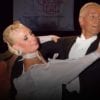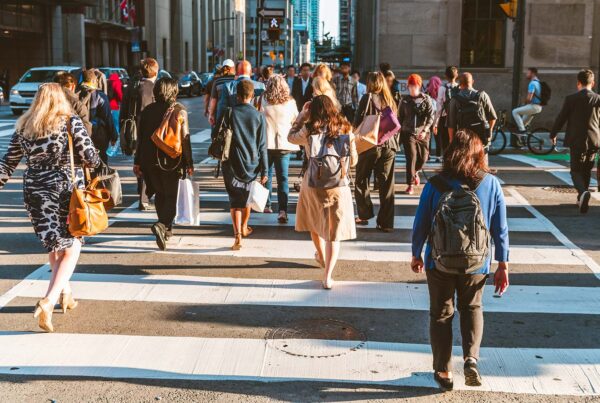No matter what you’re trying to achieve, at key points you’ll reach a plateau where you don’t seem to get better. It’s been coined the “OK Plateau” and it takes a certain kind of technique to move beyond it. Here’s some more information to help you better understand how to break through that stage.
We’ve always been told that practice makes perfect. Malcolm Gladwell has calculated that it takes 10,000 hours of practice to become an expert at something. But surprisingly, research has found that practice alone, no matter how much, doesn’t get you through the OK Plateau.
So why is it that even if you keep doing something over and over, you don’t necessarily get better at it?
In his book Moonwalking with Einstein: the Art and Science of Remembering Everything, author Joshua Foer summarizes this phenomenon.
In the 1960s, the psychologists Paul Fitts and Michael Posner attempted to answer this question by describing the three stages that one goes through when learning a new skill. During the first phase, known as the “cognitive stage,” you’re intellectualizing the task and discovering new strategies to accomplish it more proficiently. During the second “associative stage,” you’re concentrating less, making fewer major errors, and generally becoming more efficient. Finally you reach the “autonomous stage,” when your brain feels that you’ve gotten as good as you need to get at the task and you’re basically running on autopilot. During that autonomous stage, you lose conscious control over what you’re doing.
Most of the time that’s a good thing. Your mind has one less thing to worry about. As Foer puts it, the autonomous stage seems to be one of those handy features that evolution worked out for our benefit. The less you have to focus on the repetitive tasks of everyday life, the more you can concentrate on the stuff that really matters, the stuff that you haven’t seen before.
When dancers reach this autonomous stage where they are good enough to get by, their dancing skill tends to move to the back of the mind’s filing cabinet and doesn’t receive a lot of additional attention, even when you practice your dancing.
Foer describes that you can actually see this shift take place in MRI scans of people learning new skills. As a task becomes automated, the parts of the brain involved in conscious reasoning become less active and other parts of the brain take over. He refers to it as the “OK Plateau,” the point at which you decide you’re OK with how good you are at something, turn on autopilot, and stop improving.
We all reach the OK Plateau in most things we do, from learning to drive a car to golfing, typing or, of course, dancing. That’s why many dancers can take lessons week after week, year after year and never seem to advance beyond a certain stage of competency.
Psychologists used to think that OK plateaus marked a wall that limited our ability to improve any further, something that was termed “Galton’s Wall.” But science has since proven that this is a myth for most people. With the right kind of focus in our learning and practice process, we can break through and achieve an unlimited amount of skill in anything we work towards.
What researchers have found is that we can continue to improve by adjusting what we consider an acceptable level of performance. We must be able to identify areas where we need to keep improving and then challenge ourselves in very specific ways to raise the bar for our skill. In essence, this forces us to stay in the “cognitive phase” and thus avoids the next two phases where our learning process starts to plateau.
Professionals and amateurs tend to have very different practice regimens. Studies of figure skaters have found that the less skilled athletes will often spend their entire practice just doing their whole routine or going through figures that they have already mastered, while the best skaters tend to use their practice time working through tedious exercises or specific actions or figures that are not meeting their expectations of performance.
Keeping your practice hard is a key part of improving. We must watch ourselves fail in order to keep improving.
Psychologists have discovered that the most efficient method that typists can use to improve their skill is to type 10-20 percent faster than they can type comfortably. This forces them to make mistakes. Through those mistakes, their progress moves forward at a much faster pace than others who stay within a less error-prone comfort zone.
Keeping your practice hard is a key part of improving. We must watch ourselves fail in order to keep improving.
Professional teachers can also hit the OK Plateau just as amateurs can. In fact, I believe it’s probably easier for Pros because their students are already looking to them in awe. So pros need to be especially vigilant on continuing their improvement. The best teachers continue to take regular lessons long after they have stopped competing. They also continue to observe the state-of-the-art and keep working on their own skills in other ways such as continuing to upgrade their certifications.
Competition is the best way for dancers to improve because it forces them to go through this process. We get immediate feedback on our shortcomings.
Unfortunately, even competitors can become complacent and enter the autonomous zone, especially if they keep getting good results. Being compared against the same competitors, or being marked by exactly the same judges all the time can be a source of comfort that leads to the OK Plateau. It’s important to put yourself in settings where you are forced to work harder, where you will finish lower than you expect.
When Wendy and I were actively competing we sought out events and judging panels that had never seen us before. We visited competitions where we were complete strangers, forcing us to work harder to get audience support and to be noticed by judges who had never seen us. We would visit competitor practices in big cities like Toronto where we would be on the floor with the Canadian champions and other top-6 couples, forcing us to push harder than we would in the comfortable settings back home.
Other ways to keep raising your own progress bar is to watch the best couples in the world and then watch your own performance on video, comparing the difference between them with an open mind. It can be very discouraging but keeps your brain from feeling that you are “good enough” and thus keeps you in the conscious phase of learning.











